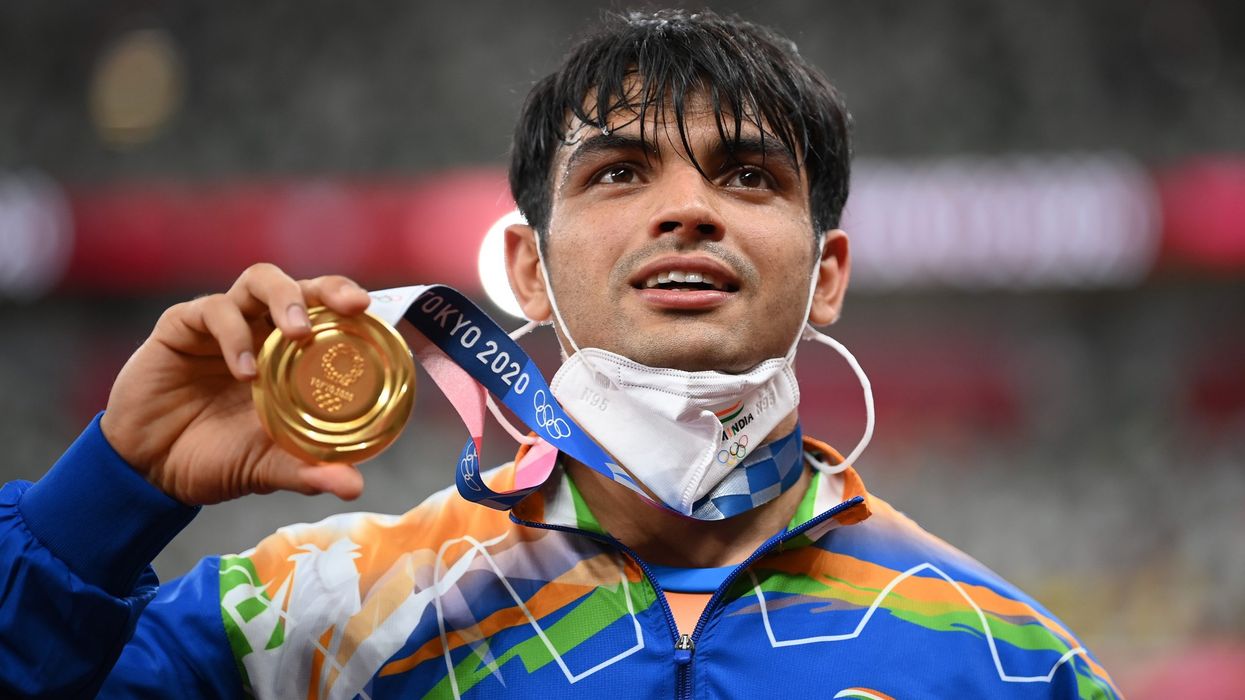Athletics Federation of India President Adille Sumariwalla on Wednesday (18) said star javelin thrower Neeraj Chopra's historic gold medal at the Tokyo Olympics helped in removing a "huge mental block" from the country's track and field athletes.
The AFI chief said by his achievement at the greatest stage of sports, Chopra has shown the world that nothing is impossible and India has the potential to churn out many more champions in future.
Chopra had created history by becoming the first Indian track and field athlete to win a medal at the Olympics, that too a gold, in the Tokyo Games earlier this month.
"The federation is there to guide the athletes and show them the way forward. Neeraj's gold has shown a way that it is possible. He has removed the mental block and I assure you that there are many more things to happen," Sumariwala said during virtual media interaction after the Indian mixed 4x400m relay team won a bronze in the U-20 World Championships in Nairobi on Wednesday.
"Neeraj showed the way, Hima (Das) showed the way and it is a proof that we are emerging into a new India."
The Indian quartet of Bharat, Priya, Summy and Kapil clocked 3:20.60 seconds to finish third in the final and win the country's only fifth medal in the history of the championships.
Nigeria and Poland won the gold and silver medals with timings of 3:19.70s and 3:19.80s respectively.
India had entered the final as the second best team overall with a championship record timing of 3:23.36s in the heat races held in the morning.
Sumariwalla said the bronze in the U-20 World Championships speaks volumes of India's bench strength in athletics.
"Getting an Olympic medal is ultimate but it is not a flash in the pan. This medal at the world junior championships shows the depth and this why this medal is so important," he said.
"As far as I am concerned the best will run, junior or senior doesn't matter, bench strength is important. The federation is there to create enough bench strength, where we can change runners, substitute runners when needed."
The AFI President lauded the performance of the relay team's feat on the first day of the championships and said there were many more to come.
"It's a momentous occasion for us. This goes to show the depth of out junior programme. It's just a matter of time that we start getting more medals from athletics at the world level," Sumariwalla said.
"I think it's a great vision but it's a long-term plan. We can't achieve achieve success overnight."




